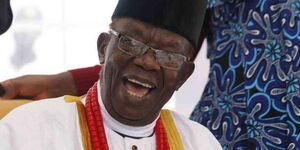United States President Donald Trump has warned of fresh tariffs on countries that charge Value Added Tax (VAT), such as Kenya, which could shake up the country’s economic standing.
The second-term US president, in a post on X, directed the country's Secretary of State, Secretary of Commerce, Secretary of the Treasury, and United States Trade Representative (USTR) to explore ways and implement tariffs to countries that charge Value Added Tax (VAT) on goods entering the American market citing unfair nature of the VAT system poses on goods imported from the US. He explained that the tariffs would be a reciprocity to US system of trade.
“On Trade, I have decided, for purposes of fairness, that I will charge a reciprocal Tariff meaning, whatever Countries charge the United States of America, we will charge them - No more, no less!” Trump averred.
“For purposes of this United States Policy, we will consider Countries that use the VAT System, which is far more punitive than a Tariff, to be similar to that of a Tariff. Sending merchandise, product, or anything by any other name through another Country, for purposes of unfairly harming America, will not be accepted,” he added.
Kenya charges a standard 16 percent VAT on imported goods from countries such as the US, but exports to these countries are zero-rated.
This means imports to Kenya from foreign countries are priced higher locally. Consequently, consumers are more likely to avoid buying such goods in favour of cheaper imports from other countries. As a result, revenues into foreign countries such as the United States take a hit.
In the realm of exports, Kenya heavily benefitted from the African Growth Opportunity Act (AGOA), particularly in the textiles and apparel manufacturing sector. Since its inception in 2000, Kenya has exported $6.5 billion (Ksh 840B) worth of garments under AGOA to the US duty-free. Kenya is the highest garment exporter under AGOA, well ahead of Lesotho, which comes second, and with higher US exports than both Mauritius and Madagascar.
Additionally, Kenya has exported $577 million (Ksh 74.5B) worth of nuts duty-free under AGOA to the US since 2000 highlighting the sheer benefit to the country in that regard.
If the sanctions take effect, many Kenyans would be affected as it would lead to a higher cost of production. This would have the potential knock-on effect of job cuts, and reduced exports and revenues.
In that regard, Trump highlighted that a tariff system would be more favourable to the US as compared to the VAT system. This logic might stem from the fact that imposing tariffs on imported goods provides greater protection to local industries thus driving up their revenues. Tariffs are also a great source of direct income to governments.
Of greater significance, however, tariffs are a great trade policy tool that can be used strategically to control imports, promote specific sectors, or retaliate in trade wars. Trump hinted at this in his statement noting that tariffs would be imposed in a mutually beneficial way.
“It is fair to all, no other country can complain and, in some cases, if a country feels that the United States would be getting too high a Tariff, all they have to do is reduce or terminate their Tariff against us,” he expressed.
Overall, Trump noted that the sanctions would bring greater fairness to trade involving the US and other countries. Citing the extensive benefit extended by the US to other countries, the tough-talking president added that the measures would result in a level playing field.
“For many years, the U.S. has been treated unfairly by other countries, both friend and foe. This System will immediately bring fairness and prosperity back into the previously complex and unfair system of trade,” Trump stated.












